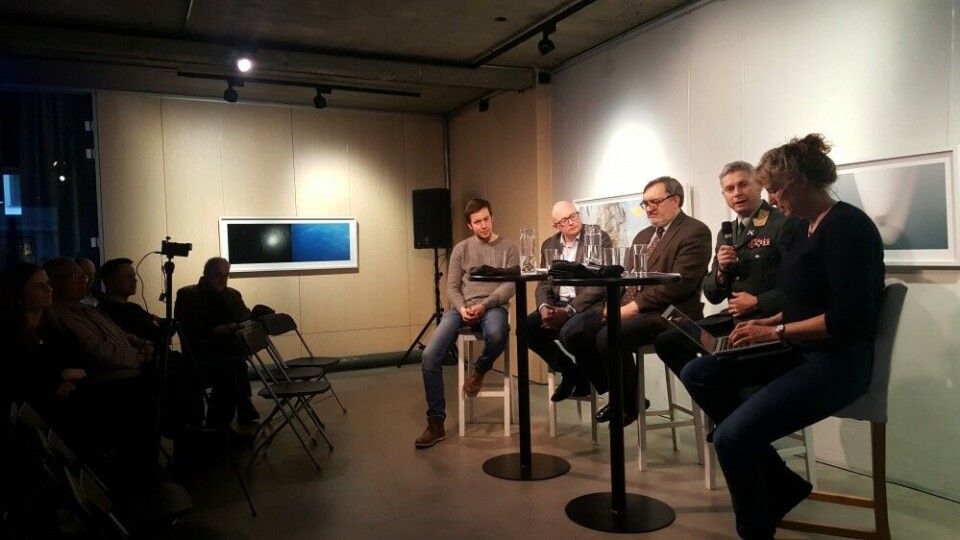
University of Tromsø gets NATO support to hybrid warfare study
How resilient are civilians to hybrid warfare and how to act in crises? A research project will include case studies from four countries vulnerable to hybrid warfare, including Norway.
NATO grants 3 million kroner (€309,000) to UiT, Norway’s Arctic University for taking lead position in a three-year long international study focusing on the knowledge gap in civil-military interaction in crisis situations.
“The project, named ResilientCivilians, focuses on the role of civilians in conflict, and how actions and reactions by civilians are significant towards the stability or vulnerability of a society to hybrid warfares,” says Professor Gunhild Hoogensen Gjørv to the Barents Observer. She works at the university’s Centre for Peace Studies and will lead the research which additional to Norway has partners in Denmark, France, Finland, the Netherlands, Ukraine and USA.
Professor Hoogensen Gjørv tells the researchers will not only look into weaknesses in societies that might be manipulated, “but more importantly identify more possibilities for peace and stability through civilian engagement.”

Case studies collecting new data from four vulnerable countries; Ukraine, Norway, Greece and France will be highlighted with the aim to help NATO and EU to reduce harm caused by hybrid threats. Included in the work is the role of media and social networks in hybrid threats. A question to be answered during the research period is how Norway should act in situations that could lead to chaos or conflicts, and how civilians can interact to reduce the likeliness that such situations happens.
The project will officially be launched in Tromsø on Wednesday, May 2nd. Among the partners is the European Centre of Excellence for Countering Hybrid Threats (Hybrid CoE) recently established in Helsinki.
For NATO, which approach to hybrid warfare relies heavily on the notion of resilience, the project will help better to understand how to strengthen the role of civilians and civilian agencies in crisis and conflict scenarios.
One of the outcomes from the research project will be a handbook of best practices to serve as a reference guide for both NATO and EU. Also, policy recommendations will be presented.
Present at the project launch in Tromsø is also Hedda Langemyr, Manager of UTSYN, a newly established Norwegian forum for encouraging more public debate on foreign and security policy.
“We put particular emphasis on inputs and outputs from research communities outside Oslo, to broaden the debate on issues both regarding military and non-military challenges we are facing,” says Hedda Langemyr and continues: “We believe that a knowledge based public discussion provides a good framework for both increasing resilience and strengthening our democracy.”
“Therefore,” she says “are we happy to co-operate on a project like this, promoting innovative measures to engage and build civilian awareness on vital topics concerning safety and security.”
















